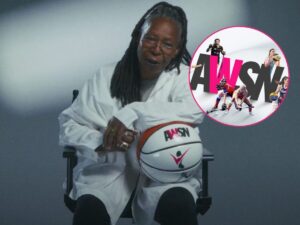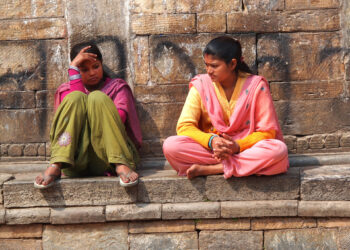Women labelled/with intellectual disability still feel ignored by mainstream feminist movement.
Faced with accusations of being a ‘white women’s movement’, the feminist movement is taking steps to evolve towards meaningful and active inclusion of all women. In doing so, it has the opportunity to ensure that all women are represented and heard.
This opportunity was an impetus for our research which, for the first time, sought the perspectives of a small group of Canadian women labelled/with intellectual disabilities on feminism. As researchers with long involvement with people labelled/with intellectual disabilities personally and professionally in research, advocacy, and activism, we know well their common experiences of exclusion.
The thoughts and opinions of the women we spoke with in our research project about feminism offer a powerful testament to the gaps in women’s collective advocacy and activism and a call to re-imagine feminism as a truly inclusive force for change.
In our study, we interviewed eight women labelled/with intellectual disabilities in the provinces of Ontario and Alberta in Canada. Most women we spoke to were introduced to the concept of feminism for the first time through participation in our study. Throughout, they turned also to Google, family members, or service providers for more information and clarity; they were interested to learn more. This initial revelation and response underscores a significant gap in feminist discourse, revealing the extent of their exclusion, their alienation from mainstream feminist movements.
Women in the study who did have some knowledge of feminism frequently associated feminism with notions of gender equality and being strong women. Mariah demonstrates an understanding of the primary tenets, when she says, “Feminism means, um, having the same rights as everyone and being treated though, like everyone should be treated equality or equally.” Erin articulated that feminism was a response to being unseen, stating that feminism is “when females speak up ‘cause nothing is getting done.” She then pointedly addressed feminism’s oversight of women labelled/with intellectual disabilities, highlighting a pervasive experience of neglect within broader feminist circles: “They’re ignoring us”.
There were evident gaps in their knowledge and understandings of the full scope of feminist ideals and objectives. These gaps were informed in part by not having been taught about feminism, the limited definitions they accessed from the Internet or through conversation with their peers.
Yet in our conversations the women demonstrated their frustrations of not being treated equally in private and public spheres. They shared experiences of exclusion, discriminatory and hurtful treatment in workplaces, sports, with peers, and romantic partners.
Simultaneously, they were making plain the various ways that women labelled/with intellectual disabilities navigate social issues, engage in advocacy and activism, and efforts to achieve more social equality. With only limited knowledge of feminism, participants identified commonalities in the ways they advocated for their individual and community rights, which aligned with feminist movements.
As the interviews unfolded and deeper discussions about feminism occurred, the majority of women maintained the view that the feminist movement is important, is crucial to their development and one that could embolden them towards exercising greater autonomy towards individual rights. Despite their initial uncertainties, the concept of feminism began to resonate with them as a path to empowerment and to greater independence. Jennifer confidently asserted, “women still have a right.” This concise yet powerful affirmation speaks volumes about her belief in the inherent rights of women. Echoing this sentiment, Mariah added, “I think all women should be respected.”
The broader feminist movement, often led by white and nondisabled voices, seeks to advance women’s rights but has not always fully included women labelled/with intellectual disabilities. This oversight is also present in other feminist movements focused on intersecting identities, as well as in the disability rights movement, which sometimes neglects the specific needs of those with intellectual disabilities. The exclusion from both feminist and disability advocacy highlights a need for greater inclusivity.
Making space for women labelled/with intellectual disabilities in feminist movements and actions is crucial for several reasons. Around the globe, women with disabilities encounter distinct challenges compared to their non-disabled counterparts in relation to economic participation, social opportunities, health and well-being, to sexual and reproductive care and support. While also experiencing all of these, women labelled/with intellectual disabilities, these challenges are particularly pronounced in the realm of sexual and reproductive health care, where barriers abound. Access to maternal health services tailored to their needs and to accessible resources remains a significant hurdle. Importantly, societal and systemic obstacles often impede their opportunities to engage in sexual relations, or to marry and have children. Alarmingly there are documented instances of women labelled/with intellectual disabilities being forced to use birth control medications, as well as of coerced sterilisation, highlighting a grave violation of their rights and autonomy.
Disabled women of colour face even more pronounced systemic and intersectional barriers, navigating a complex web of discrimination that intersects with race, gender, and disability (and may be further compounded by class, age, geography, etc.). As a disabled woman of colour, Vilissa Thompson has noted:
“Within the Black community, I felt different because of my disability status; within the disabled community, my blackness made me stand out like a sore thumb.”
The disabling impacts of intersecting identities were identified by a participant in our study, Helena, who illuminated the disparities faced by women labelled/with intellectual disabilities. She spoke candidly about the diminished opportunities available to them, pointing to how women labelled/with intellectual disabilities are often marginalised by their non-disabled counterparts. As she noted, they can sometimes be “run all over” by non-disabled women and their priorities. Her reflections brought to the forefront the intersectional hurdles of gender and disability, painting a picture of a community doubly disadvantaged.
For Helena, knowledge of the layers of discrimination experienced by women labelled/with intellectual disabilities led to a resigned skepticism towards the possibility of societal change. She had developed a coping strategy borne out of necessity rather than choice: “I think you just learn to cope with it or live with it to survive.”
This does not mean that women labelled/with intellectual disabilities are not pushing back and advocating for themselves and for and with others in their lives.
The collective sentiment among participants was not one of resignation, but rather of a compelled resilience; they recognise strength as a necessity, whether it is for their own sake or for the sake of others in their lives. They highlighted strategies to use when engaging in activism, advocacy, and support for peers and community members. This includes mobilising action in collaboration or partnership with existing organisations, and sharing existing resources to ensure peers and community members are aware of how or where to access support and services.
Ingrid articulated this stance with clarity and conviction: “There are things going on with women, and then when I say something, I get in trouble for it. But I’m still advocating for [it]. If we don’t advocate for ourselves, nothing is going to be done.” Her statement embodies the proactive spirit with which many of the women participating in the research confront their challenges, and advocate tirelessly not only for themselves but for the broader community of women labelled/with intellectual disabilities.
Women labelled/with intellectual disabilities can bring invaluable perspectives and strengths to feminist mobilising and activism. This needs to be both recognised and supported.
By incorporating the knowledge, experience and leadership of all disabled women, feminist movements can better challenge and dismantle not only patriarchal structures but also ableist barriers.
The participation and leadership of disabled women, including women labelled/with intellectual disabilities can inspire innovative strategies for feminist activism, making the feminist agenda more robust, intersectional, and effective.
There is a critical need for a feminist movement that embraces more women’s voices. Our findings serve as a call to action, urging feminist communities to broaden their horizons and ensure that feminism is truly accessible to and representative of all women. By integrating the experiences and challenges of women with disabilities into the feminist dialogue, we can move towards a more inclusive and equitable movement. Let us commit to expanding our understanding and advocacy to encompass all women, particularly those who have been historically sidelined.
Note:
Participant names are pseudonyms to protect their identities. Also, we use the term “women labelled/with intellectual disability” in recognition that the label of disability can be attributed by someone else and may not be personally embraced by the individual it describes.
Authors:
Alan Santinele Martino, Assistant Professor, Community Rehabilitation and Disability Studies, University of Calgary
Ann Fudge Schormans, Professor, School of Social Work, McMaster University
Arielle Perrotta, Ph.D. Candidate, Department of Anthropology and Archaeology, University of Calgary
Anna Couillard, Undergraduate Student, Community Rehabilitation and Disability Studies, University of Calgary
Clodagh Perras, Undergraduate Student, Community Rehabilitation and Disability Studies, University of Calgary
Molly Johnson, Undergraduate Student, Community Rehabilitation and Disability Studies, University of Calgary
















